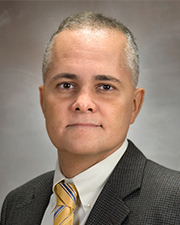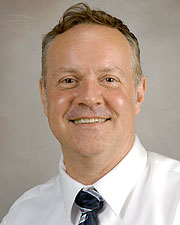Soares, Meyer complete phase II of study on psilocybin
Results of a Phase II trial studying a synthetic form of psilocybin for treatment-resistant depression, which included co-investigators Jair C. Soares, MD, PhD, Pat Rutherford Jr. Chair; and Thomas D. Meyer, PhD, LP, professor, from the Louis A. Faillace, MD, Department of Psychiatry and Behavioral Sciences, were recently published in the New England Journal of Medicine.

Soares and Meyer were among an international multi-institutional group of researchers who found that a single high dose of a proprietary, synthetic form of psilocybin, a hallucinogen found in psychedelic mushrooms, combined with talk therapy, could treat severe depression.
Participants met with a therapist at least three times prior to receiving the medication to build trust, receive psychoeducation, and prepare for the psychedelic experience, according to the researchers. The patients experienced a state similar to daydreaming, being in autopilot mode, or rumination, Meyer said. Afterward, participants had two sessions with the same therapist to discuss their experience for insights.

A total of 233 enrolled participants were randomly assigned to three doses, but only the highest dose, 25 mg, which was administered to 79 patients, showed effectiveness.
Further studies are needed to test whether an improved psychological support model aligned with a high dose of psilocybin, or a second experience with psilocybin, will result in stronger and sustained effects.
Meyer said using psychedelics as part of treatments isn’t a new concept. Many societies, including ancient civilizations, have used these types of substances in religious ceremonies and healing techniques. Scientific research on the benefits of these substances grew in the 1960s, but the research was shut down for a variety of reasons, some of which were more political than science-related. Meyer said that in the last 10-15 years, a renewed interest has surfaced, giving such projects life.
Both Soares and Meyer said they look forward to being part of a coming Phase III study, as well as other studies on psychedelic treatments they hope will yield additional ways to reduce the suffering related to mental health problems.